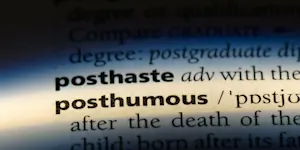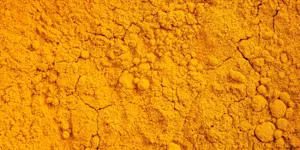What Makes This Word Tick
The word "yahoo" is a lively little noun that pulsates with energy. It has meanings ranging from a boisterous shout of excitement to its origin as a name for brutish creatures in Jonathan Swift's "Gulliver's Travels." The dual nature of this word—both a jubilant cry and a literary reference—makes it uniquely dynamic and fascinating.
If Yahoo Were a Person…
If "yahoo" were a person, they’d be that exuberant friend who always breaks into spontaneous dance or laughter, often delighting and occasionally bewildering those around them. With a slightly uncouth charm, they'd be the type who knows how to have a good time but might need a gentle nudge to remember their manners.
How This Word Has Changed Over Time
Originally, "yahoo" was an insult, thanks to Swift's depiction of uncivilized creatures in the 18th century. Fast forward to contemporary times, and you'll find it more commonly used as a joyous exclamation, proving that even words can experience personality transformations.
Old Sayings and Proverbs That Use Yahoo
Though "yahoo" might not be steeped in traditional proverbs, its playful essence has created modern expressions. You might hear someone shout, "Yahoo and away!" as they embark on an adventure, channeling that spirit of unbridled enthusiasm and exploration.
Surprising Facts About Yahoo
Did you know that Yahoo! was one of the internet's GO-TO places in the dot-com boom? The company name was chosen because the founders liked the definition of a yahoo as someone who is rude, unsophisticated, or uncultured. It was a nod to their cheeky sense of humor.
Out and About With This Word
"Yahoo" is commonly heard at sporting events or large gatherings where collective excitement explodes into cheers. You might shout "Yahoo!" when your team scores, when you've landed that perfect fishing catch, or simply when life surprises you in a delightful way.
Pop Culture Moments Where Yahoo Was Used
In the world of pop culture, "Yahoo" is perhaps best known as an early internet giant, but who can forget its catchy jingle? You’ve probably hummed "Yahoooooo!" more times than you care to admit while surfing the web in the late '90s.
The Word in Literature
"Yahoo" leaps off the page in Jonathan Swift’s "Gulliver's Travels." Here, the Yahoos are savagely primitive humanoids, offering a satire on mankind itself. The word has since marched into literary realms as both a fictional being and as part of a celebration.
Moments in History with Yahoo
Imagine the roaring cheers at the end of World War II; "Yahoo!" would have perfectly captured the relief and jubilance sweeping the streets. Similarly, during the moon landing, those involved might have let out a "Yahoo!" as humanity leaped forward.
This Word Around the World
In different cultures, variations of "yahoo" exist as expressions of excitement. While its essence is universal, the vocalizations differ. In Spanish, you might hear "¡Yuju!" while in France, it’s closer to "Youpi!" capturing the same jubilant spirit globally.
Where Does It Come From?
The word "yahoo" was coined by Jonathan Swift around 1726 when he wrote "Gulliver's Travels," setting the stage for a term that would eventually leap from page to everyday parlance. It stemmed from imagination and satire, sealing its literary roots.
How People Misuse This Word
People sometimes exclaim "Yahoo!" in situations calling for other forms of cheer, like "Yay!" or "Hooray!" While not technically incorrect, it lacks the Internet prowess or Swiftian satire some conflate it with, depending on the era they reference.
Words It’s Often Confused With
Yay: A simple cheer or expression of approval.
Hoot: A loud cry or exclamation that often accompanies laughter or enjoyment.
Yippee: Another jubilant shout, often interchanged with "Yahoo" during celebrations.
Additional Synonyms and Antonyms
Synonyms for "yahoo" in its cheerful sense include "hooray," "woohoo," and "yippee." Antonyms might include words like "boo" or "ugh," which convey disappointment or disapproval.
Want to Try It Out in a Sentence?
"When Grandpa finally caught the fish he had been pursuing all summer, his triumphant shout of 'Yahoo!' echoed across the lake, capturing the moment perfectly."
















